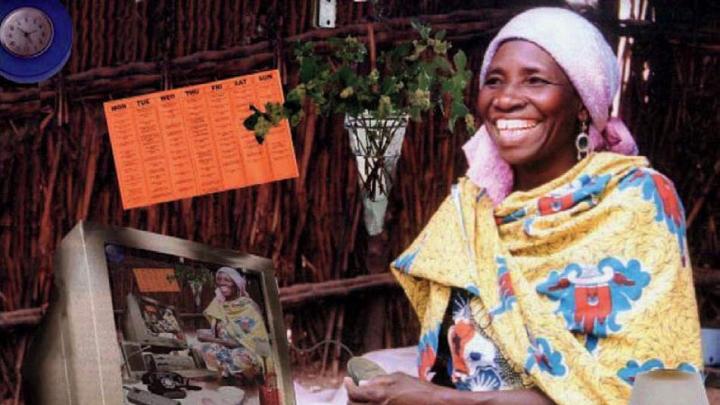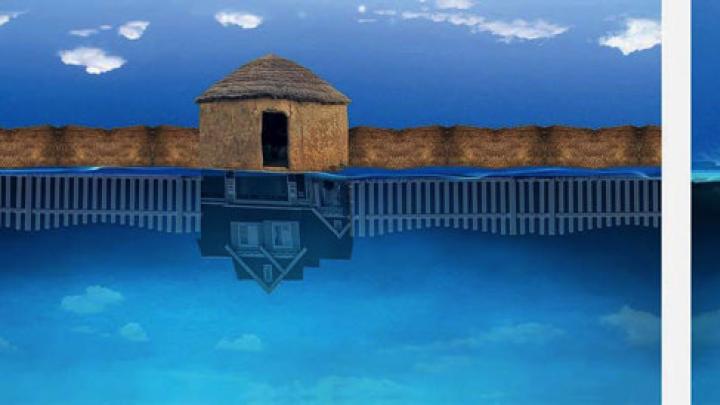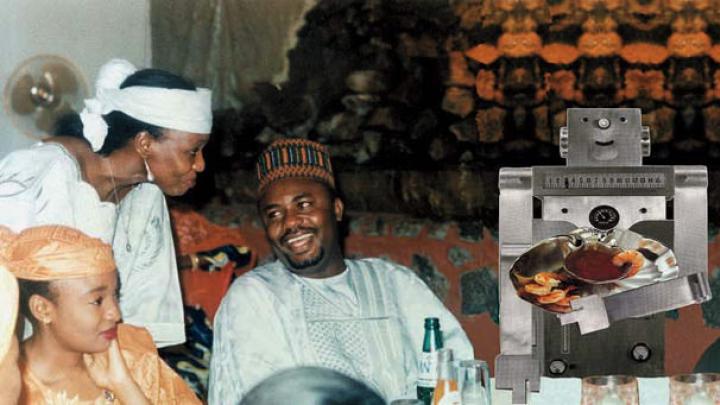“Fatimah Tuggar: Home’s Horizons,” at Wellesley College’s Davis Museum through December 15, offers 26 large-scale works by the Nigerian-born, Kansas-based conceptual artist. Given her trajectory, from roots in Africa to studying at the Kansas City Art Institute and earning a master’s in fine arts from Yale in 1995, it’s perhaps not surprising to read in the exhibit materials that her multimedia projects explore “systems underlying human interactions with both high-tech gadgets and handmade crafts.”
Her 1997 photomontage Working Woman features a grinning woman in traditional Nigerian dress sitting cross-legged on the floor, sheltered by a handmade wooden windscreen. She’s also surrounded by a land-line telephone, power strip, wall clock, and desktop computer—displaying on its screen a duplicate image of the entire Working Woman montage. It’s as if the woman is dialing in, or into her self, as she appears in the virtual, commercial brand-happy contemporary age. Home’s Horizons (2019) is a computer montage diptych that also speaks to cultural bifurcation. The images reflect nearly mirrored blue skies and oceanic water, separated along a horizontal plane, that splits images of what might be a traditional, ancestral home on one side, and a modern gabled house, with the proverbial American white-picket fence, on the other.
A 2019 Guggenheim Fellow, Tuggar has received many other major awards and exhibited works internationally since the 1990s. The Davis Museum show is a major solo exhibition, however, and conveys Tuggar’s sense of humor and playfulness, along with her nuanced cultural commentary. The commissioned installation Deep Blue Wells combines textiles, sculptures, video, and augmented reality (an interactive experience in which real-world elements are digitally enhanced). It evokes the centuries-old indigo dye-wells in the ancient city of Kano, Nigeria (among the last of their kind in operation) and reflects on the intersections of history, virtual reality, and globalization. See the work in person, and/or—in the spirit of computer-enabled communications—learn more, directly from Tuggar herself, by visiting the campus virtually via a free “Artist Skype Talk” on November 19.










